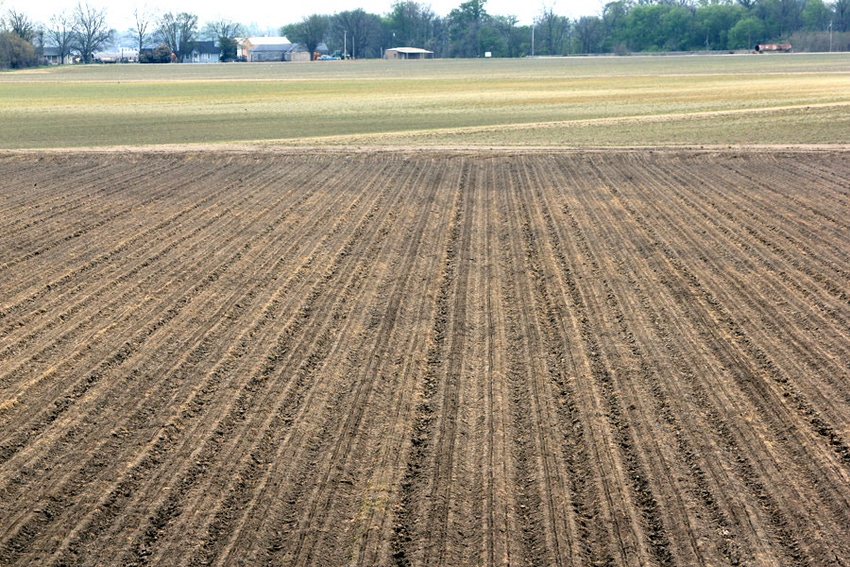March 23, 2015


(Click to enlarge)
Farming and the commodity industry has always been cyclical and thus farmland values have as well. The largest assets held by the majority of farmers are their investments in land. Almost everyone always wants it to go up. In the real world, almost nothing goes up forever.
The accompanying graph is quite revealing for a historical relationship on farmland values versus gross farm income. The historical values and projected 2015 farm income are all USDA statistics. The solid line is the average value of farmland nationwide which last year was slightly over $4,100 per acre. The dashed line is an indication of what land should be worth based on a regression formula using estimated gross farm income from the USDA.
Roll back to the 1980s. Land was slightly overpriced relative to the income it was producing. Then comes the collapse in the land market in the early 1980s, reaching a trough in 1987. It is interesting to note that from 1987 to 2005, the income generated from farmland indicated that land prices were very underpriced. For those of us who lived through those times, we know why. Everyone who survived was either too afraid to buy land or didn’t have enough money to do so.
Beginning in 2005 and continuing until today, however, farmland prices equaled or exceeded the historical fair value as derived from our gross farm income to land value model. In 2013 and again in 2014, speculative buying of farmland drove prices substantially higher than the income generated from that land should have justified. In 2014, cropland was overvalued by 16 percent relative to income. With gross farm income anticipated to decline further in 2015, overvaluations today are even more significant.
Supporting factors for values
There are several reasons many investors will rely on to help support the value of farmland. They include:
1. Farmers are still sitting on significant amounts of cash and that helps purchasing at auctions.
2. Debt on farmland is at an all-time historical low as a percent of asset value. The problem with this argument, however, is that as farmland prices correct, (and they will) what was a 50 percent debt-to-equity ratio becomes a 75 percent debt if farmland values drop by 25 percent. The other concerning point here is as land prices soften and debt stays steady, will regulators force lending institutions to readjust the amount of equity a farmer needs in order to maintain ownership? This is likely the biggest concern we all face in the next two or three years.
3. Balance sheets are strong. That is true, but they are not as strong as they were two years ago.
4. Investment funds have a lot of money. No question. There are billions of dollars sitting on the sidelines wanting to buy farmland. New investment funds are still popping up. Most of the funds want a 3 percent return on cash invested and are planning on another 10 percent appreciation of land values over time. Most of us recognize that is nearly impossible to do in today’s market.
Farmland is Local
It is impossible to give a broad-based opinion on where land values are headed. If two local farmers with deep pockets want land, it’s going to be bid up. If the wrong buyers are at an auction, prices are going to soften. We all know that.
Overall, however, the relationship of income generated on farmland and farmland values will come back into place. It is hard to imagine farm incomes rebounding quickly over the next three-year period. Assuming that to be the case, land values are going to come down eventually to meet their income potential. We are in a period now of cat and mouse between farmer and landlord. The landlord does not want to come down on cash rents and the farmer wants a lower rent but is afraid right now if he asks for it, someone else will rent the land from him.
Give everyone two more years of current economic conditions and you will witness lower cash rents and lower land values. The laws of economics have not been repealed. From the peak in 2014, to anticipate a 20-25 percent correction in land values certainly seems possible.
You May Also Like




